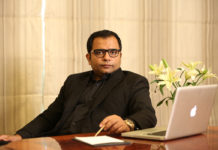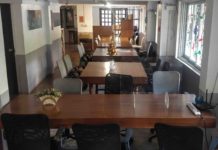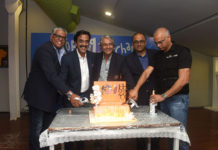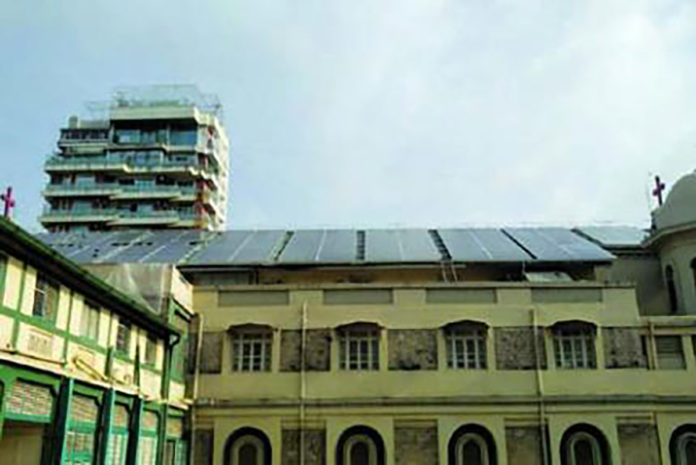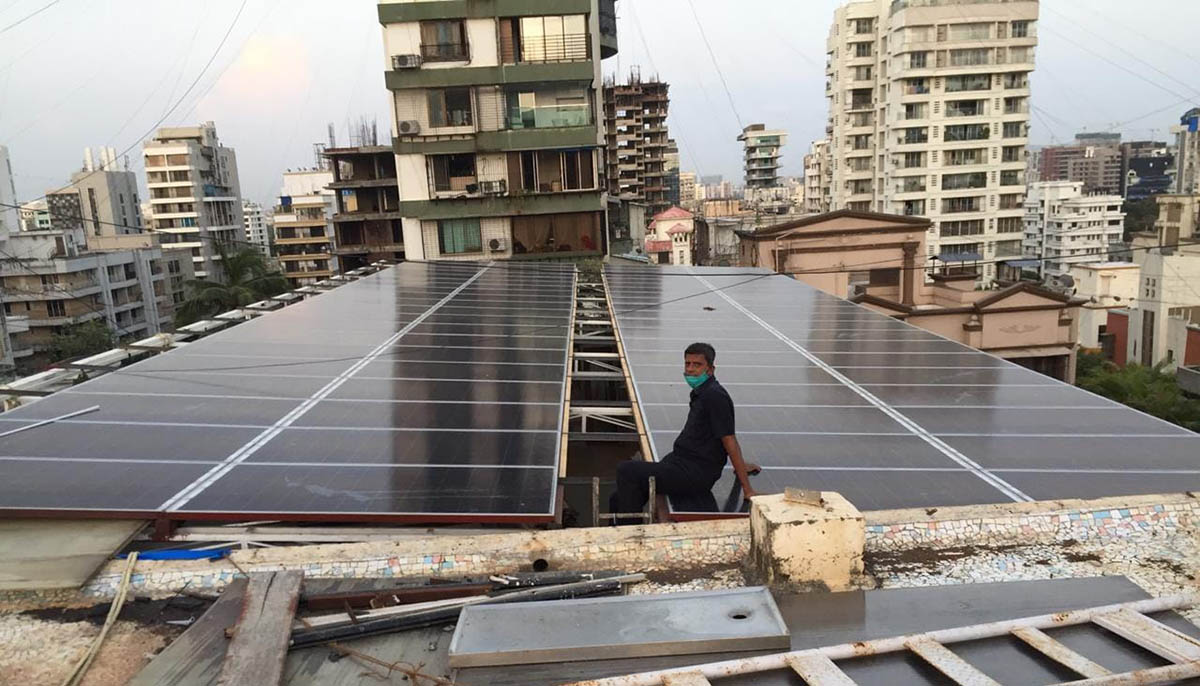The adoption of solar panels has become a consumer-friendly process over the last decade. It is encouraging to see enthusiastic companies working to enable their customers with the power of generating their power! Fascinated by this idea, I approached Bandra Buzz and worked with them to prepare some case studies and inform my fellow Bandra residents of the requirements, the process of installation and the finances involved in a solar power project.
Over the years, advancements in technology have enabled us to operate our bank accounts, credit cards and pay our bills on our mobile devices. During the lockdown, our smartphones and laptops have played the roles of our educational institutes and workplaces! The speed at which we are adopting, and adapting is simply mind-blowing.
With the increase in the use of these technologies, we require a large amount of energy to power our gadgets. A large per cent of energy supplied to the city of Mumbai is generated using fossil fuels. These sources are exhaustive. Thinking ahead, a more long-term solution will be renewable energy. By preparing to harness the energy of the sun, wind and water, we will be able to provide for ourselves as well as our future generations.
In an urban development like Mumbai, solar power is the perfect solution. It has gained popularity because of its minimal requirements for installation and short payback period. In comparison with wind or hydro, it is a tangible project, within the scope of an individual, who can finance a small to medium-sized setup on his rooftop! I think we must make effective use of Mumbai’s hot, sunny summers.
To provide a rough estimate in Bandra, a roof size of as little as 500 sq. ft. can generate electricity worth Rs. 8,000 every month. Are you ready to start cutting down on your bills?
To harness solar power, we make use of solar cells, which are placed in a series to form a solar panel. When the sun’s rays directly fall upon it, the solar cell generates a current. With bifacial panels, we are able to utilize diffused sunlight during cloudy days as well as the monsoons! For a solar panel, the period between 10 am and 2 pm is a peak period for generation of energy. The location and angle of inclination of panels are critical in order to make the most out of your installation.
For my first case study, I got connected with Executive Enclave, a business hotel in Bandra. The owner, Mr. Rohra is a proactive and enthusiastic person with a great sense of community. The hotel has set up a COVID19 drive-through testing facility and helped our community contain the spread of coronavirus. In March, Mr. Rohra worked with Oorjan Solar to set up a solar installation of 2,400 sq. ft. on the hotel rooftop. He now generates 120 units per day and an equivalent of Rs. 50,000 per month. The energy generated is fed back into the Adani grid and subtracted from his monthly bill! A fabulous feature was the app on his phone which gave him real-time updates about the energy generated by the panels. Mr. Rohra was extremely happy with his installation which had produced more energy than predicted. He now plans to encourage his friends and family to go the solar way!
Another site to study was St Stanislaus in Bandra which had set up a 74 kW system. A total of three panels were installed, two for its school and one for its church. Fr Frazier (a former principal of St. Xavier’s College) pushed the idea of self-sufficiency. He worked with Tempcon Engineering Private Limited, a company formed by an alumnus of St. Stanislaus to install and maintain the solar panels. Unfortunately, back in 2014, Tempcons and Fr Frazier faced a lot of resistance. The project took nearly 2 years to complete with state electricity boards not showing any interest in this project. Finally, in 2016, the panels were up and running and have been regularly attended to, by Tempcon.
For solar power projects, the importance of backing from the government bodies and integration with electricity providers such as Adani Electricity plays a vital role. I was extremely happy to learn that with the integration and coordination of necessary bodies, the process of application, obtaining permissions, running and maintaining solar panels is much easier. This is very encouraging for bungalow owners, housing societies, commercial and institutional buildings to take the step toward a more sustainable future.
Oorjan Solar is providing turn-key services, right from the erection of the supporting structures, to the procurement and installation of solar panels, they have provided their customers with a complete and hassle-free experience. After visiting their website, I was very eager to understand the potential of my rooftop. I got through to their engineer to survey our site and hope to install a unit very soon. So that’s an update on an upcoming project for you folks in Bandra! The concept of harnessing energy from the sun, wind and water has fascinated me since my school days. It is exciting to see that over the last six years, there has been such an increase in awareness and education of the benefits of more sustainable sources. It is truly a skill to be able to think not just for ourselves but also for the future. The concept of homes/ buildings which generate their electricity, recycle and reuse water and grow their vegetables is something that I would like to work towards. Growing up in Bandra, I have enjoyed the infrastructure built by visionary residents whose efforts have benefited my life. I feel it is our time to give back and pioneer the suburb of Bandra toward the adoption and generation of renewable energy and set an example for other suburbs in Mumbai. I know that if we work toward it together, one day we can be truly self-sufficient.






